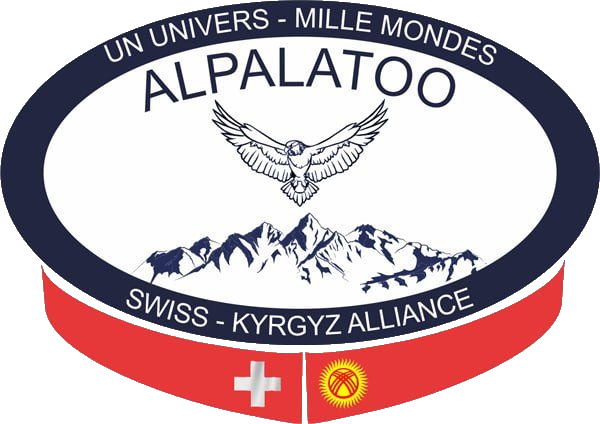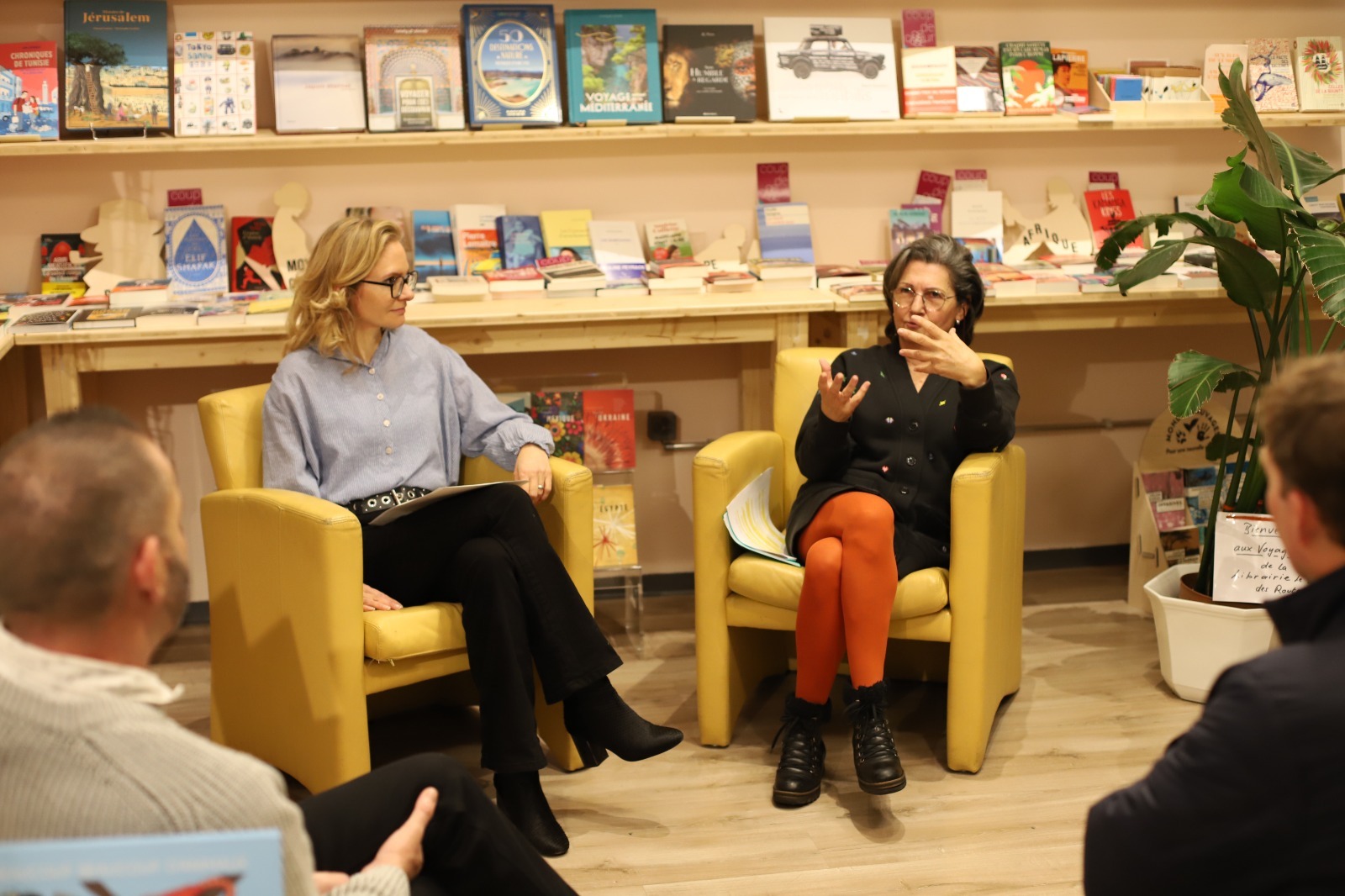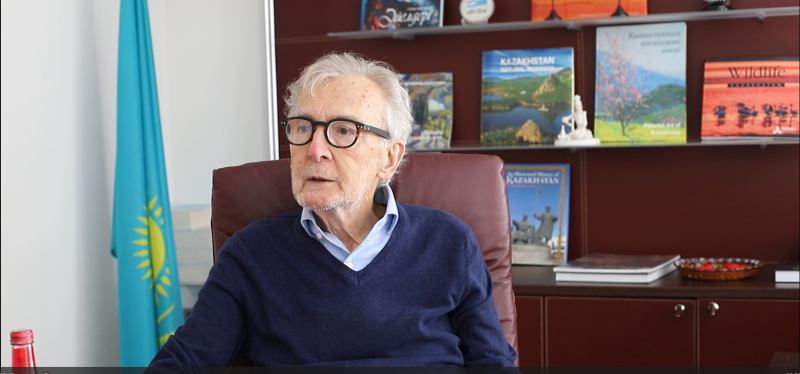Le mystère de l’eau
The mystery of water
Тайна воды
(Аккан суу)
Эгер бир чөгүн сууну Айга алып кетсең гана Жердеги суу бир чөгүнгө азаят. Болбосо Жердеги суу өз ченинен азайбайт да көбөйбөйт. Буу болуп чыгат, жамгыр болуп кайра келет. Муз болуп тоңот. Дайра болуп агат. Океан болуп чалкыйт. Аны адамзат ичет, жан-жаныбар, өсүмдүк ичет. Ошентип Жер койнунда аз да эмес, көп да эмес жарыктык суу жатканы жаткан, акканы аккан, айланганы айланган. Бул бир керемет зат экен го - аккан суу. Ошол сыяктуу жашоодо азап менен кубанычтын да өлчөнгөн чени бар деп ойлоймун. Аз дагы эмес көп да эмес. Болгону биз аларга канчалык жана кантип кабылабыз?! Кудай - биз көтөрө ала турган гана азапты берет, андан ашык бербейт...
Sur Terre, les habitants parlent plus de sept mille langues différentes. Et l’eau, dont on va parler aujourd’hui, se prononce différemment dans ces sept mille langues, avec sept mille mélodies différentes et différents alphabets. Dans n’importe quelle langue, l’eau est toujours considérée comme une chose de sacrée, comme l’est la mère. Depuis son avènement, l’Humain a créé beaucoup d’œuvres sur l’eau, des chansons, des écrits. L’Histoire a donc laissé beaucoup de légendes, ainsi que des histoires inoubliables. L’eau fait partie de l’histoire humaine avec sa beauté, sa sainteté, et malheureusement avec ses tristesses aussi. Et cette histoire continue… Chaque année, nous approchons vers le problème climatique mondial.
L'eau est la substance la plus simple et la plus familière de la planète. Mais en même temps, l'eau recèle de nombreux mystères. Les scientifiques continuent de l'étudier et trouvent de plus en plus de données intéressantes sur l'eau. Sans manger, mais en buvant, un homme peut survivre environ 40 jours. Sans manger ni boire, il meurt en 3 jours. On connaît l’importance de l’eau, mais on ne réalise pas encore. L’humain continue à ne pas respecter assez l’eau. Comme dit l’avant-garde écologiste, par le biais de Pierre Rabhi, en France : « Pour que les arbres et les plantes s'épanouissent, pour que les animaux qui s'en nourrissent prospèrent, pour que les hommes vivent, il faut que la terre soit honorée. »
Water is the simplest and most familiar substance on the planet. But at the same time, water holds many mysteries. Scientists continue to study it and are finding more and more interesting facts about water. Without eating, but drinking, a man can survive for around 40 days. Without eating or drinking, he dies in 3 days. We know how important water is, but we still don't realise it.
Humans continue to show insufficient respect for water. In the words of France's avant-garde ecologist, Pierre Rabhi: "For trees and plants to flourish, for the animals that feed on them to thrive, for human beings to live, the earth must be honoured."
Люди на Земле говорят более чем на семи тысячах разных языков. И вода, о которой мы сегодня будем говорить, на этих семи тысячах языков произносится по-разному, с семью тысячами разных мелодий и разных алфавитов. В любом языке вода всегда считается чем-то священным, как мать. Со времен зарождения человечества мы создали множество произведений о воде, песен и писаний. История оставила после себя множество легенд и незабываемых историй. Вода - часть истории человечества, с ее красотой, святостью и, к сожалению, печалью. И эта история продолжается... С каждым годом мы все ближе подходим к глобальной климатической проблеме.
Вода -
самое простое и привычное вещество на
планете. Но в то же время вода таит в
себе множество загадок. Ученые продолжают
ее изучать и находят все больше интересных
фактов о воде. Без еды, но с питьем человек
может прожить около 40 дней. Если не есть
и не пить, он умирает через 3 дня. Мы
знаем, насколько важна вода, но до сих
пор не осознаем этого. Люди все еще
недостаточно уважают воду. Как сказал
во Франции авангардный эколог Пьер
Раби: "Чтобы деревья и растения
процветали, чтобы животные, которые ими
питаются, процветали, чтобы люди жили,
необходимо уважать землю".
Des chiffres qui déchirent le cœur
Душераздирающие цифры
Heartbreaking figures
Мектепте кезде билгендей жер бетинин 70 ашык пайызын суу басып жатат. Ошол эбегейсиз суунун 97 пайызы туздуу, 3 гана пайызы ичкенге жарактуу. Анан калса жарактуу суунун жарымынан көбү кол жеткис түбөлүк муздарда жатат. Адамзат бүт ошол суунун дээрлик 1 пайызы менен гана күн өткөрүп атканын айт, атаңдын көрү!!! Жыл өткөн сайын, адамзаттан пейил кеткен сайын таза суунун бизден жипкирип тартылып атканын айт. Адамзаттын акыл-эстүү катмары ойгонуп, БУУ аркылуу 22-мартты “Сууну жана суу булактарын коргоо күнү” деп жарыя кылат. Жок дегенде бир жылда бир ойлошсунчу, эстешсинчи деп. Аккан сууну, бизди баккан сууну. Ошол адам өзү, денеси 80 пайыздан ашыгы суудан тураарын, андан 2 пайыз азайса каны какшап суусаарын, 10 пайызы жок болсо эси ооп жыгылаарын, андан ашык жок болсо өзү кошо жок болоорун дайым эле ойлонбойт. Акыркы 50 жылда жер бетиндеги 190 ашык мамлекет ортосунда суунун айынан 500 дөн ашык конфликт болуп, анын 20 дан ашыгы согуш менен аяктаптыр. Анын эң акыркыларын кечээ жакында өз башыбыздан өткөрдүк: кыргыз-тажик ортосундагы “Головной” аталган суу бөлгүчтөн. Ушул жайда Боом бойлоп баратып, Төө-Ашуу беттеп “Кара-Балта” суусун тиктеп баратып көздү эмес көкүрөктү муунтуп жаш келди. Мындай өлкөнү, мындай Мекенди сактабаган сайда кал деп. Жер бетинде ондогон миллион адамдар таза сууга сөздүн түз маанисинде зар болуп, кор болуп, суунун алыстан келишин күндөп-түндөп күтүп күн кечирет. Башка өлкөлөрдө идиштен эмес, жерде аккан таза суудан сузуп ичүү – 5 жылдыз мейманканада жаткандай же чалкалап “Кадиллак” айдагандай мода экенин, мактаныч экенин, байлыктын байлыгындай даража экенин биз болгону билбейбиз, элес албайбыз, дайым эле эстей бербейбиз. А биз кыргыз эли - дайралардан, булактардан кочуштап түз ичкен, демек, далайлар үчүн көз кызарткан бейиштей жерди мекендейбиз. Тилекке каршы “анчалык мол суубузду” сиңире албай, аш кыла албай, ырыскы кылып жугуза албай келебиз. Швейцарлар көп кабаттуу үйлөрдү айтып: “Биздин суудай таза суу жок, суусаганда чоргонун өзүнөн түз алып иче бергиле!” деп мактанып айтып келишет. А бизде таза суу бар бирок таза чорго жок. Чоргого жеткизчү таза жол жок. Анткени биз сапаттуу иштегенди, сапаттуу жеткизгенди билбейбиз. Швейцария шаарларынын дал ортосунда “булактын суусу” деген чорголордон суу тынбай агып турат. Аны сөзсүз эле бул өлкө бай болгон үчүн курулуп калган жок, болгону калкты ойлогон үчүн, элге кам көргөн үчүн, тоолуу өлкөсүндө суу мол болгон үчүн суу жетелеп келип чыгарып коюшту. Болгону ошол. Ыраматылык Табылды Эгембердиев агабыз “Мынакей колуңу созсоң кашкайган тоо булакка жетесиң” деп колун тоо тарапка сермеп калчу эле. Ошого колун созуп койгон бизде шаар бийлиги жок болуп жатканын айт.
On peut faire parler les chiffres, mais quand il s’agit de l’eau, ça déchire le cœur. Elle est si présente sur la planète, et même temps si rare : l'eau recouvre 71% de la surface de la Terre, à 97% salée et 3% douce. Sur ces 3%, 2% sont difficilement accessible pour l’humain. Celui-ci n’utilise donc qu’1% de l’eau douce sur la Terre.
Chaque année, l’homme consomme 1% d’eau en plus. Les industries utilisent 20 % de l'eau douce pour toutes leurs activités. La consommation domestique ne comprend que 10 % de l'utilisation mondiale en eau douce, mais elle est très inégalement répartie. Par exemple, aux USA, on utilise 300 litres d’eau par jour et par habitant, en Europe 100 à 200 litres par jour et par habitant. En Suisse, une personne consomme en moyenne 142 litres par jour dans le secteur domestique.
Par contre, sur le continent africain, l’eau est encore plus inégalement répartie : 14 pays sont menacés d’une grave pénurie ; 80 % des personnes privées d’un accès à une source d’eau potable vivent en Afrique ; un Africain sur deux est obligé de parcourir, chaque jour, une dizaine de kilomètres pour aller chercher l’eau dont il a besoin. En 2025, avec 750 millions d’habitants, la population urbaine africaine dépassera la population totale de l’Europe.
Numbers can speak for themselves, but when it comes to water, it's heartbreaking. It is so present on the planet, and yet so rare: water covers 71% of the Earth's surface, 97% of it salty and 3% fresh. Of this 3%, 2% is difficult for humans to access. So we only use 1% of the Earth's freshwater.
Every year, humans consume 1% more water. Industries use 20% of freshwater for all their activities. Domestic consumption accounts for only 10% of global freshwater use, but it is very unevenly distributed. For example, the USA uses 300 litres of water per person per day, while Europe uses 100 to 200 litres per person per day. In Switzerland, the average person uses 142 litres per day in the domestic sector.
On the other hand, on the African continent, water is even more unevenly distributed: 14 countries are threatened by a serious shortage; 80% of people without access to a source of drinking water live in Africa; one African in two is obliged to travel ten kilometres every day to fetch the water they need. By 2025, with 750 million inhabitants, Africa's urban population will exceed the total population of Europe.
Цифры могут говорить, но когда речь заходит о воде, это приводит в ужас. Ее так много на планете, и в то же время она так редка: вода покрывает 71 % поверхности Земли, 97 % из нее соленая и 3 % пресная. Из этих 3% 2% труднодоступны для человека. Таким образом, мы используем только 1% пресной воды Земли.
Каждый год человек потребляет на 1 % больше воды. Промышленность использует 20 % пресной воды для всех видов своей деятельности. На бытовое потребление приходится всего 10 % мирового потребления пресной воды, но оно распределено очень неравномерно. Например, в США на одного человека приходится 300 литров воды в день, а в Европе - от 100 до 200 литров на человека в день. В Швейцарии средний человек использует 142 литра в день в бытовом секторе.
С другой стороны, на африканском континенте вода распределена еще более неравномерно: 14 странам угрожает серьезная нехватка; 80% людей, не имеющих доступа к источнику питьевой воды, живут в Африке; каждый второй африканец вынужден ежедневно преодолевать десять километров, чтобы добыть необходимую ему воду. К 2025 году городское население Африки, насчитывающее 750 миллионов человек, превысит общую численность населения Европы.
195 стран, у каждой из которых свое отношение к воде
195 countries, each with a different relationship to water
195 pays avec chacun un rapport différent à l’eau
Ал эми ааламды айтсаң көл менен деңизди кой, дүйнөлүк океандардан жылына 300 миллион тоннага чейин пластик таштандыларын таап чыгышууда. 300 миллион тонна! Элестетип жатасызбы!? Аны тунук суу эмес кара жер кантип көтөрүп тураарын ойло! Ири химиялык, атомдук заводдор, адамдардын табиятка мамилеси казандагы суу сыяктуу океан суусун жылытып, түбөлүк муз тамырларын жибитип келет. 2050-жылга дүйнөлүк океандын кычкылдуулугу өзгөчө артып, табияттык катастрофа күтүлөт деп илимдеги экологдор добулбас кагышууда. Бул - табиятка өзгөчө жакын болчу, ынак болчу кез келди дегендик. Аккан сууну акчабызды үнөмдөгөндөй үнөмдөөчү, сактоочу мезгил келди. Адамды аяш үчүн суу менен абаны аяш керек. Бишкектин абасын аяш керек. “Күз келип, окуулар башталып, Бишкектин көчөлөрү кайрадан тыгын” деди алыстагы эжем менен сүйлөшсөм. “Көчөгө машина батпайт” деди. Чоң шаарлардын баарында эле ошондой – тыгын түгөнбөйт. Бирок жок дегенде алардын моторунан май тамбайт. Түтүнү ашык булгабайт. Биздин бийлик Бишкекти тазартышты машиненин техникалык кароосунан баштаса туура кадам жасаган болоор эле деп ойлойм.
L’ONU avait reconnu 195 pays indépendants et pour chaque pays, il y a son destin différent en relation avec l’eau. Il y a des biens et il y a des pires. Comparée à d'autres régions du monde, l’Amérique latine, par exemple, ne manque pas d'eau : au contraire, c’est une des plus riche. Mais la région accuse un retard colossal en matière de traitement des eaux usées.
L'eau ne connaît pas de frontières. La coopération internationale est donc nécessaire. L'eau est un instrument de paix, elle ne doit jamais devenir un instrument de guerre. Il existe 263 bassins fluviaux transfrontaliers dans le monde, dont environ deux tiers n'ont pas de programme de gestion commun. Les eaux internationales requièrent des normes internationales. Environ 80 pays, c'est-à-dire 40 % de la population, souffrent de pénurie d'eau.
15000 personnes, dont 6000 enfants, meurent chaque jour de maladies liées au manque d'eau potable. Dans le même temps, 1,3 milliard de personnes dans le monde n'ont pas accès à l'eau potable, soit presque un cinquième de la population mondiale, et 500'000 millions pourraient subir le même sort dans un avenir proche. Plus d'un tiers se trouvent sur sol africain.
La première cause de cette menace de pénurie d'eau est le changement climatique, causé par l'interférence humain. La croissance de la population mondiale et donc la demande sont également une cause.
The UN has recognised 195 independent countries, each with its own destiny in relation to water. Some are better, some worse. Compared to other regions of the world, Latin America, for example, is not short of water: on the contrary, it is one of the richest. But the region is lagging colossally behind when it comes to wastewater treatment.
Water knows no borders. International cooperation is therefore essential. Water is an instrument of peace; it must never become an instrument of war. There are 263 transboundary river basins in the world, around two-thirds of which have no joint management programme. International waters require international standards. Around 80 countries, i.e. 40% of the population, suffer from water shortages.
15,000 people, including 6,000 children, die every day from diseases linked to a lack of drinking water. At the same time, 1.3 billion people in the world do not have access to drinking water, i.e. almost a fifth of the world's population, and 500,000 million could suffer the same fate in the near future. More than a third of these are in Africa.
The primary cause of this threat of water shortage is climate change, caused by human interference. Global population growth, and hence demand, is also a cause.
ООН признала 195 независимых стран, у каждой из которых своя судьба в отношении воды. Некоторые из них лучше, некоторые хуже. По сравнению с другими регионами мира, Латинская Америка, например, не испытывает недостатка в воде: напротив, она одна из самых богатых. Но этот регион колоссально отстает, когда речь заходит об очистке сточных вод.
Вода не знает границ. Поэтому необходимо международное сотрудничество. Вода - это инструмент мира; она никогда не должна стать инструментом войны. В мире насчитывается 263 трансграничных речных бассейна, около двух третей из которых не имеют совместной программы управления. Международные воды требуют международных стандартов. Около 80 стран, то есть 40 % населения, страдают от нехватки воды.
Ежедневно 15 000 человек, в том числе 6000 детей, умирают от болезней, связанных с нехваткой питьевой воды. В то же время 1,3 миллиарда человек в мире не имеют доступа к питьевой воде, то есть почти пятая часть населения планеты, а 500 000 миллионов может постигнуть та же участь в ближайшем будущем. Более трети из них проживают в Африке.
Основной причиной угрозы нехватки воды является изменение климата, вызванное вмешательством человека. Также причиной является рост населения планеты, а значит, и спроса.
Que faire pour obtenir plus d’eau ?
What can be done to get more water?
Что можно сделать, чтобы получить больше воды?
Кудай бизге адамзат өзү көтөрө ала турган гана азап берет, андан ашык бербейт дейт экен. Демек, тууганым, бизге салган баардык азаптардын чени бар жана ачкычы бар ача турган…
Tous les pays du monde devraient investir dans les nouvelles technologies d’exploitation de l’eau. Ils devraient sensibiliser leurs populations à la gestion économique de l'eau. La responsabilité sociale des entreprises consommant de grandes quantités d'eau et mettant en œuvre les principes de la politique de développement durable est également nécessaire.
Nous devons réagir et commencer à nous battre aujourd’hui, car l’avenir appartient à ceux qui respectent l’eau.
All the countries of the world should invest in new water exploitation technologies. They should make their populations more aware of the economic management of water. The social responsibility of companies consuming large quantities of water and implementing the principles of sustainable development policy is also necessary.
We must react and start fighting today, because the future belongs to those who respect water.
Все страны мира должны инвестировать в новые технологии использования воды. Они должны повысить осведомленность своего населения об экономическом управлении водными ресурсами. Необходима также социальная ответственность компаний, потребляющих большое количество воды, и внедрение принципов политики устойчивого развития.
Мы должны отреагировать и начать борьбу уже сегодня, потому что будущее принадлежит тем, кто уважает воду.





